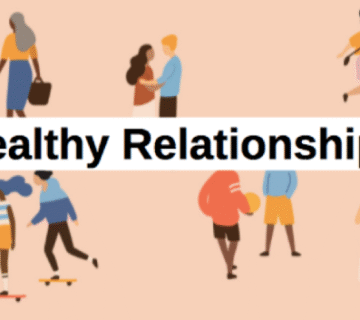Sexual friendship—sometimes known as “friends with benefits,” “sex friendship,” or “friend with sex”—describes a connection where friends share sexual intimacy without the expectations typical of romance. This arrangement is increasingly common across ages, genders, and cultures, driven by changing values and greater openness about human relationships. But what’s the reality behind the stories? Can sexual friendships offer benefits beyond the obvious, or are they filled with hidden risks? This comprehensive, human-focused article answers these questions, incorporating scientific evidence, real-world perspectives, and practical advice—naturally weaving all relevant keywords for optimal discoverability.
Primary keywords throughout: sexual friendship, sex friendship, friends sex, friend with sex, friendship sex, friends with benefits, intimacy in friendship, best friends have sex, sex between friends, sex in friendship.
Table of Contents
-
What Is Sexual Friendship?
-
Why Do People Choose Sex Friendship?
-
Major Benefits of Sexual Friendship
-
Risks and Challenges in Sex Friendship
-
Gender Differences and Dynamics
-
Key Rules for a Healthy Sexual Friendship
-
Real-World Research: What Does Science Say?
-
Common Myths vs. Realities
-
Stories and Scenarios: Voices From Experience
-
Recommended High-Authority Resource
-
Conclusion
What Is Sexual Friendship?
A sexual friendship is a relationship between friends who mutually agree to include sex or physical intimacy without advancing toward romance or partnership. While the term friends with benefits is familiar, sexual friendship emphasizes the ongoing, trust-based nature of the relationship—rather than a single, fleeting encounter or casual hookup. These connections exist all over the world and within every sexual orientation.
Types of sexual friendship:
-
Occasional encounters between platonic friends
-
Recurrent sex with an existing best friend
-
Friendship sex as an exploration, not a step toward dating
-
Sexual intimacy that remains distinct from exclusivity and romance
Why Do People Choose Sex Friendship?
People embrace sexual friendship for reasons that are both practical and deeply emotional:
-
Comfort and Safety: Trust is already built in; friends know each other’s quirks and limits, making these arrangements feel safer and more open.
-
Curiosity and Exploration: Friendship allows for judgment-free sexual experimentation and self-discovery.
-
Convenience and Openness: It’s easier logistically and emotionally to connect with someone familiar than a stranger or casual date.
-
Life Transitions: After a breakup or during single periods, a friend offers a low-pressure way to meet sexual and emotional needs.
Major Benefits of Sexual Friendship
A growing body of research and shared experiences highlights genuine advantages:
| Benefit | How It Helps |
|---|---|
| Trust & Emotional Safety | Lowers anxiety and embarrassment; easier to express needs & boundaries |
| Honest Communication | Friends communicate sexual likes, dislikes, and boundaries more openly |
| Sexual Satisfaction | Increased comfort allows for a playful, satisfying bedroom experience |
| Deeper Bonding | Many report feeling more connected, not less, after sex with a friend |
| Flexibility | Freedom from romantic labels; adaptability as needs change |
| Discovery & Growth | Offers a safe space for personal discovery and growth |
Notably, the majority of those who embark on sex in friendship arrangements say their bond was either strengthened or unchanged afterward, provided clear expectations and communication exist.
Risks and Challenges in Sex Friendship
Despite these potential rewards, sexual friendship brings inherent risks:
-
Blurred Boundaries: Ambiguity about the “label” can create confusion, tension, or insecurity.
-
Unbalanced Emotions: One friend may develop deeper feelings, leading to jealousy or heartache—especially if expectations are not shared.
-
Changing Dynamics: Intimacy can suddenly make hangouts awkward or shift how you function in your social circle.
-
Stigma and Gossip: Others may judge, misunderstand, or react poorly, especially in traditional cultures or tight-knit communities.
-
Potential for Loss: When things end (due to romance, jealousy, hurt), the friendship may permanently change or dissolve.
Gender Differences and Dynamics
Research demonstrates clear trends in how men and women (and those of diverse genders) approach and experience sexual friendship:
-
Men are more likely to pursue friends for sexual access and may rate sexual compatibility higher as a reason for deepening friendship.
-
Women often value the emotional intimacy and support inherent in friendship, and may be more cautious in pursuing sexual intimacy without clarity about future expectations.
-
Both genders experience attraction and act on it in cross-sex friendships, but outcomes hinge largely on open discussion and mutual agreement.
Key Rules for a Healthy Sexual Friendship
To maximize the benefits while minimizing the pitfalls:
1. Communicate—Early, Honestly, and Regularly
-
Discuss what the sex “means,” and what each of you wants and expects (now, and if things change).
-
Set clear boundaries for sex, exclusivity, social interactions, and public knowledge.
2. Prioritize Consent and Comfort
-
Both must feel fully comfortable, with the ability to change or withdraw at any moment.
3. Plan for Change and Endings
-
Craft an “exit strategy”: How will you return to friendship if sex stops being fun, wanted, or possible?
-
Allow for distance if needed—and respect each other’s process.
4. Safe Sex and Health
-
Trust doesn’t replace safe sex. Use protection, be honest about STI status, and keep health a priority.

5. Respect Privacy
-
Agree on how much to share with mutual friends or other partners; aligned discretion can avoid drama.
Real-World Research: What Does Science Say?
Key findings:
-
Strengthening the Bond: In a Boise State University study, 75% of people reported feeling more connected to a friend after having sex, and only 25% reported any harm to the friendship.
-
Communication Predicts Outcome: The difference between success and failure most often lies in upfront, honest conversations about desires and boundaries—not in the sex itself.
-
Sustainable for Most: Many friendships remain intact or deepen, provided both parties avoid secrets, ambiguous expectations, or unspoken hopes for romance.
-
Potential for Drama: Where harm occurs, it’s almost always due to differences in intent or a breakdown in trust and communication.
Common Myths vs. Realities
| Myth | Reality |
|---|---|
| Sex always ruins a friendship | With communication, most remain intact or even grow stronger |
| Only men want sex—but women get attached | Both genders can enjoy or struggle with sexual friendship |
| Friends with benefits never last | Many arrangements last as long as both want, transitioning as needed |
| Sex in friendship is just casual, lacking intimacy | These relationships can be deeply intimate, honest, and meaningful |
| You can always return to “just friends” | Sometimes possible, sometimes not; expectations and process matter |
Stories and Scenarios: Voices From Experience
-
“We were best friends for years before sleeping together. Afterwards, we laughed a lot and felt even closer—though sometimes, when one of us started dating, it got complicated. We always talked things through, and now, we’re still friends.”
-
“I fell for my sex friend, and when it wasn’t mutual, I had to pull away for a while. Eventually, we rebuilt the friendship, but it took work and honesty on both sides.”
-
“Having a sexual friendship was freeing until gossip in our friend group got out. In the end, because we handled it with openness and mutual support, we kept both the friendship and the trust intact.”
Recommended High-Authority Resource
For science-driven tips, guides on navigating sexual friendships, and support for healthy boundaries and sexual wellness, visit Planned Parenthood’s comprehensive guide to sex and friendship. Their advice is widely respected and offers expert help for anyone exploring sex friendship or worried about their emotional safety.
Read More: Friendship and Sex Relationship: How Sexual Friendship Shapes Connections, Risks, and Fulfillment
Conclusion
Sexual friendship can be a powerful, healthy, and entirely valid relationship choice—if both friends value honesty, clear boundaries, and emotional awareness. The most successful sex friendships rely not just on physical connection, but on a foundation of trust, comfort, and radical candor. Risks remain, especially when intentions diverge or communication falters. But as research and experience show, outcomes depend far less on whether friends have sex, and far more on how they navigate the change together.
If you’re considering or already in a sexual friendship, return often to these pillars: talk openly, adjust as you go, and always respect your friend’s needs and boundaries as much as your own. With the right approach, friendship sex can be a deeply satisfying—and lasting—form of human connection.








[…] Read More: Sexual Friendship: Benefits, Risks, and How to Build a Healthy Relationship […]
[…] Read More: Sexual Friendship: Benefits, Risks, and How to Build a Healthy Relationship […]